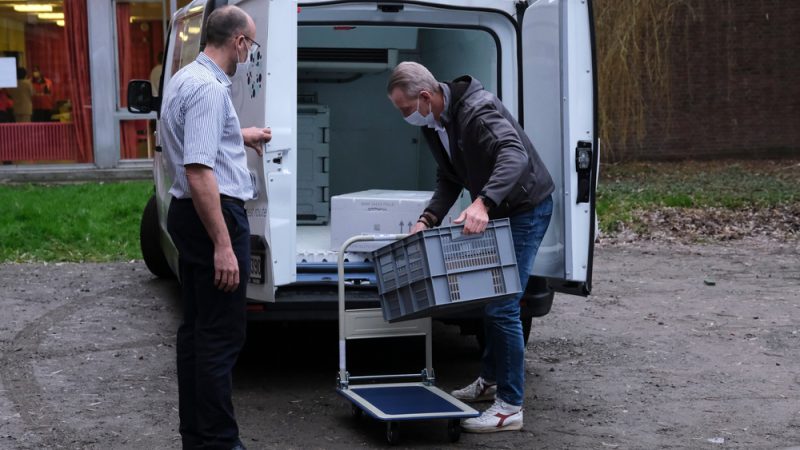Most COVID-19 vaccine contracts signed by the European Commission lacked specific provisions to address supply disruptions, and procurement processes could have been more scrutinised, the European Court of Auditors (ECA) found in a new report released Monday (12 September).
In November 2021, the Commission secured 4.6 billion COVID-19 vaccine doses on behalf of member states via contracts worth €71 billion.
The contracts were mainly advance purchase agreements, in which the Commission shared the development risk of a vaccine with the vaccine manufacturers and supported the preparation of at-scale production capacity through upfront payments from the EU budget.
While by many metrics the procurement process was a success – by the end of 2021, 80% of the EU’s adult population was fully vaccinated, through the delivery of some 952 million doses – the ECA’s auditors found that “that are still lessons to be learned” from the procurement process.
“The Commission acted as a bridge between companies and member states for contract implementation, but when the EU was confronted with severe supply shortfalls in the first half of 2021, it became clear that most contracts did not include specific provisions to address supply disruptions,” said Joëlle Elvinger, ECA member responsible for the report, during a press briefing on Monday.
Lack of provisions and assessment
In February 2021, the Commission set up a task force to support vaccine manufacturing and supply chains. “While it did help resolve bottlenecks, it is unclear how much impact it had on ramping up vaccine production,” Elvinger said.
Auditors also found that the Commission did not fully analyse the production and supply chain challenges until after signing most of the contracts.
Moreover, it was found that procurement objectives were better secured in the later contracts with vaccine manufacturers.
“[Contracts] signed in 2021 have stronger provisions on key issues such as delivery schedules and production location than those signed in 2020,” said Elvinger.
The report also highlights that procurement started later than in the UK and the US.
Lessons not learned
“The Commission has not yet scrutinised or benchmarked its procurement process to learn lessons for future improvements; nor does it currently plan to test its pandemic procurement system through stress tests or simulations,” Elvinger highlighted.
She added that “as the EU’s external auditors, we aim to identify blind spots and suggest improvements in the areas we audit.”
One of the recommendations put forward by the auditors is the creation of pandemic procurement guidelines. The guidelines should support the implementation of a proposal for crisis management in the Financial Regulation and a proposal for a Council Regulation on a framework for medical countermeasures at the EU level in the event of a public health emergency.
Another recommendation for the Commission is to stress-test the EU’s medical countermeasures procurement approach is the second recommendation to the Commission.
“In particular, it should carry out a risk assessment of the EU’s procurement approach and test all parts of its updated pandemic procurement strategy to identify any weaknesses and areas for improvement,” Elvinger concluded.
[Edited by Nathalie Weatherald]




